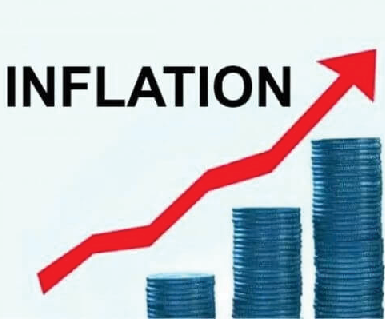The Monetary Policy Committee(MPC) of the Central Bank of Nigeria (CBN) rising from its 287th meeting in Abuja last week took the market unawares raising the Cash Reserve Requirement by five per cent to 32.5 per cent alongside an increase of 150 basis points in the monetary policy rate, being the benchmark interest rate,.
In line with its resolve to maintain a hawkish stance as long as inflation continues to rise, the MPC raised the Monetary Policy Rate (MPR) to 15.5 per cent, from 14 per cent, the third time it will do so this year. In total, benchmark interest rate has been raised by 400 basis points as inflation rose by over 500 basis points from 15.6 per cent in January to 20.52 per cent in August this year.
According to the governor of the CBN, Godwin Emefiele, raising the rates is crucial at this time to curb the rising inflation and control money supply in the system especially as the country is in an electioneering season. He noted that broad money supply (M3) grew by 11.05 per cent in August 2022, compared with 8.66 per cent in July.
To curb money supply, the CBN said it will be taking out liquidity from the vaults of bank, a decision that is to be effected through the increased CRR. Emefiele had stated after the MPC meeting that having raised rates, “we expect that this decision at this meeting must be seen to be potent and must achieve the effect that the MPC thinks it should achieve. We will take their CRR of a minimum of 32.5 per cent which means that we are going to take liquidity out of their vaults.
“This message is to underscore the fact that MPC is taking this very aggressive decision to rein in inflation must yield result. We do not want to face Nigerians in the next few months and we begin to take the blame for not being able to rein in inflation in spite of all the rates that we have raised. So we have decided to adopt a two pronged approach increase MPR to see interest rates go up and secondly CRR going up to mop liquidity effectively out of the vaults of the banks.”
To analysts at Afrinvest West Africa, while the MPR hike is compelling to curb deterioration in price level, “we believe the move would be less effective if the CBN continues to finance FG’s deficit, tighten supply, and manage market yield. Also, while the CRR increase would aid disinflationary moves, banks’ ability to sweat out assets would further be dampened, while cost of borrowing for businesses would race to new highs.”
However, the director, Banking Supervision of CBN, Mr Haruna Mustafa, whilst expanding on the decision to hike rates explained that, “if we look at even traditional economic theory or the monetary policy theory, when you have too much money chasing too few goods you have inflation that’s that has been classical theory and for us, the decision to adjust CRR is to mop up liquidity and it has proved over time to be a very potent tool.
“But when you put it side by side with the LDR. Policy, yes back in 2019 and as part of, measures to stimulate growth, don’t forget our policy mantra has always been price stability that is conducive to growth. So to nudge banks to increase lending, particularly to the real sector, the central bank introduced the loan-to-deposit ratio policy, which is basically saying that you need to achieve an initially 60 per cent and then later 65 per cent LDR ratio and with that policy, we saw bank lending going up in leaps and bounds and which a positive impact on the growth and recovery efforts that followed even the COVID situation.
“So, we felt encouraged by that and we feel given the successes recorded, we need to sustain that and so but because the COVID situation came and we needed to allow banks some room to be able to cope with the adverse impact of the COVID-19 pandemic. We sort of relaxed enforcement of that area policy, but recently, we signaled the resumption of enforcement. And based on the recent numbers we’ve seen, we’ve also seen an uptick in terms of the number of banks that have met that threshold.
“So it is a good policy, the decision of yesterday is, again, complimentary, this is to rein in inflation. So, they are not conflicting policy goals, they are complementary and they are working intention.”
To ensure that money supply is also curbed from its side, the CBN also said it will be reducing outflow through its several interventions to the private sector as well as to the government. Having given out over N9 trillion to the private sector through loans and N19 trillion to the government through ways and means, these funding from the apex bank is expected to slow down in the coming months.
Director, Development Finance Department, Central Bank of Nigeria(CBN), Mr. Philip Yila Yusuf, noted that “we are slowing down on interventions it’s not as if we are not going to do anymore. N9.3 trillion went out N3.75 was repaid, and N5 trillion is not due. Manufacturing which is long-term between five and 10 years, N5 trillion of it is not due, as its due, it would come back. The interventions have been slowed down.
“We already started even before the announcement, the MPC to taper some of the programmes that we were doing. I can confirm to you that the gates have been closed to make the monetary policy tool that has been deployed is very effective, you definitely strain the money supply. So indeed we have closed the gates, only interventions that are very, very critical. MSMEs that are statutory which take 5 per cent of every bank’s and profit after tax, it is not a lot to deploy to SMEs, and then supporting the electricity sector is very, very critical.”





